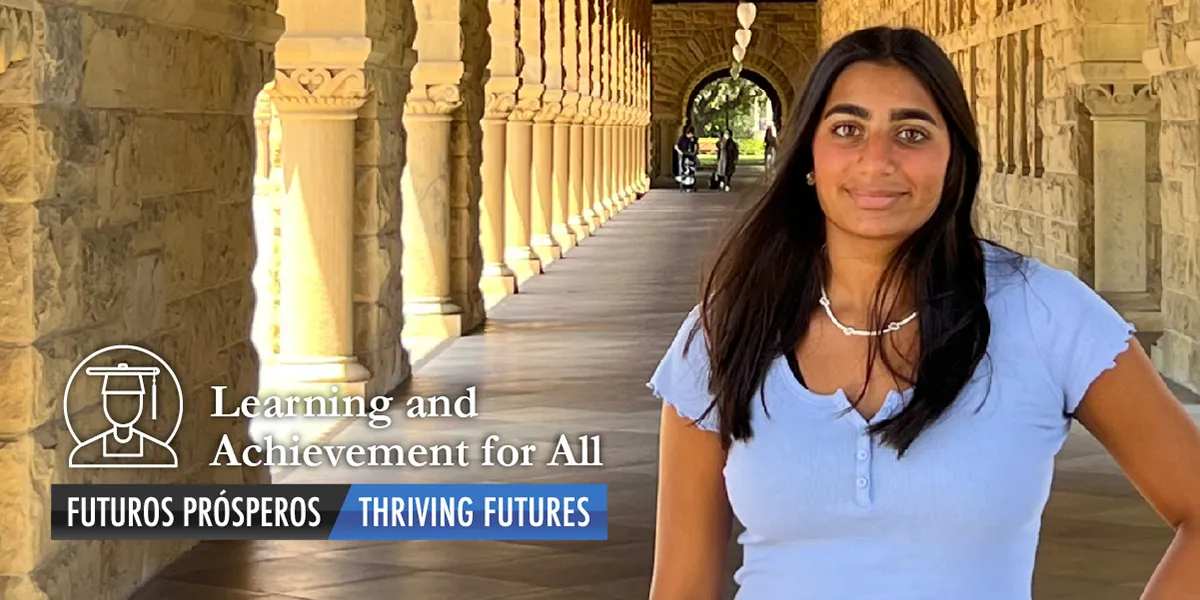
Rania Lateef, a sophomore at Charles J. Colgan Sr. High School, is one of four high school students in the nation to receive the national Neuroscience Research Prize. The award recognizes scientific skill and potential for scientific contributions in the field of neuroscience. This is the first time a PWCS student has received this prize. Lateef’s research focused on the effects of sleep deprivation and circadian rhythm disruptions on a fruit fly’s lifespan, mood, and addiction-like behaviors.
“I found that sleep and circadian disturbances in flies had a measurable and significant negative impact on mortality, innate behaviors...and propensity to caffeine,” said Lateef.
The idea for her research came from a combination of natural curiosity, the encouragement of her PWCS science teachers from an early age, and most directly, the enormous disruptions she and the rest of the world faced during the COVID pandemic.
“Divorced from regular social and academic routines, our biologic rhythms were in compete disarray and we saw stress, sleep disturbances, and substance use soaring in our community,” Lateef said. “I pondered whether they were related phenomena. With each article and website I scoured, it became obvious that the answers to my questions were embedded in complex neurochemical circuits and were influenced both by genes and environment.”
Lateef credits Loriann Pawlik, physics teacher, Stephanie Brown, biology teacher, opportunities such as the science fair, and nurturing environment at Colgan High School for supporting her curiosity and love of science.
“I’m so glad Colgan encourages us to do science fair even though we are a fine and performing arts school,” Lateef shared, adding that the teachers have been an “amazing source of support and advice throughout this project.”
Lateef hopes to use her love of science in the future to find a career that combines the fields of cognitive neuroscience, epidemiology, and public health.
“I believe that the gap between mind and brain must be overcome, and I want to connect molecules to memories and circuits to conversations,” she said.
Lateef’s prize includes $1000 and an all-expenses-paid trip to present her work at the 2023 Child Neurology Society Annual Meeting.

